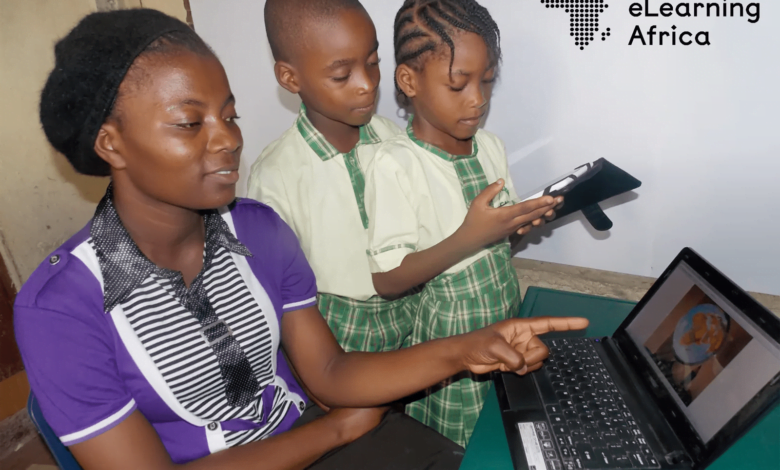Empowering Africa’s Future : the Transformative Power of Digital Learning
Africa stands at a critical juncture, where the path to advancement and prosperity depends upon the empowerment of youth through quality education, training, and skills development. With a rapidly growing population, the continent faces an urgent need to create at least 15 million decent jobs annually. This challenge highlights the importance of investing in comprehensive learning opportunities to foster an enlightened, empowered, and economically vibrant society.

By Rebecca Stromeyer, Founder & CEO at eLearning Africa

The rapid advancement of digital technologies has transformed various aspects of our lives, including education and training. In Africa, digital learning has emerged as a powerful tool to address the continent’s educational challenges and drive socio-economic progress. As the African Union’s Agenda 2063 sets forth ambitious goals for inclusive growth and sustainable development, the role of digital learning in equipping Africans with the necessary skills and knowledge has become increasingly evident.
The COVID-19 pandemic has accelerated the adoption of digital learning across Africa, revealing its potential to expand access to education and training at all levels, from primary and secondary schools to higher education, vocational training, and lifelong learning. Online learning platforms have enabled learners to continue their studies and acquire new skills despite school closures and social distancing measures. For example, the African Development Bank’s Coding for Employment programme has successfully leveraged digital learning to provide coding and soft skills training to thousands of African youth, preparing them for the digital workforce.
The implementation of digital learning in Africa faces several challenges, particularly in terms of infrastructure and accessibility
However, the implementation of digital learning in Africa faces several challenges, particularly in terms of infrastructure and accessibility. Limited access to reliable electricity and internet connectivity remains a significant barrier, especially in rural and underserved areas. The cost and quality of internet access in Africa are also major concerns, with prices being higher than in other regions of the world. Moreover, the affordability of digital devices, such as computers and smartphones, hinders the widespread adoption of digital learning. Addressing these infrastructural issues requires concerted efforts from governments, private sector actors, and development partners to invest in the necessary infrastructure and ensure inclusive access to digital learning opportunities.
Open educational resources (OER) play a crucial role in promoting inclusive and accessible digital learning. By leveraging OER, African educators and learners can access high-quality educational content, reduce the cost of learning materials, and promote the localisation and contextualisation of learning resources.
Explore innovative solutions and best practices in digital learning
The 17th edition of eLearning Africa, which will take place in Kigali from May 29 -31, provides a platform for stakeholders to explore innovative solutions and best practices in digital learning. Under the theme « Education Fuels Innovation, Investment Amplifies Skills: Africa’s Vibrant Leap Forward, » the conference aims to showcase the latest trends and initiatives in digital learning across various sectors, including K-12 education, higher education, technical and vocational education and training (TVET), and workplace learning and development.
The conference features a diverse range of tracks, covering topics such as data analytics, artificial intelligence, educational technology innovations, and skills development. Initiatives like the Teacher’s Empowerment Agenda and Equity Enhancement Initiatives highlight strategies for capacity building among educators and bridging digital divides. By showcasing African-developed tools and platforms, eLearning Africa 2024 promotes homegrown innovations and encourages the development of contextually relevant solutions. The conference will also showcase successful OER initiatives and encourage the adoption and creation of OER across the continent.
Investing in digital learning is not only essential for expanding access to education and training but also for driving innovation and economic growth in Africa
Collaboration and partnerships are crucial for advancing digital learning in Africa. eLearning Africa 2024 fosters dialogue and knowledge sharing among governments, educational institutions, technology providers, and development organisations. By leveraging these partnerships, stakeholders can pool resources, expertise, and best practices to scale up digital learning initiatives and maximise their impact across the continent. For instance, the Partnership for skills in Applied Sciences, Engineering and Technology (PASET) has been working with African governments and international partners to strengthen digital skills training in technical and vocational education.
Investing in digital learning is not only essential for expanding access to education and training but also for driving innovation and economic growth in Africa. Many of the economies across the continent are experiencing steady and impressive growth, fuelled by the world’s most youthful population, and it is this demographic dividend that holds the key to sustaining and accelerating Africa’s progress. By equipping learners with digital skills and competencies, e-learning can foster entrepreneurship, job creation, and technological advancement.
In today’s rapidly evolving digital landscape, it is crucial to acknowledge that the vast majority of occupations, both in the present and the foreseeable future, will require a certain level of digital proficiency. Moreover, there is a growing number of careers that are intrinsically linked to digital technologies. Developing digital literacy and proficiency through digital learning can significantly improve one’s employability prospects and competitiveness in the job market, as these skills are now deemed essential across a wide spectrum of industries and sectors.
Governments and private sector actors must recognise the transformative potential of digital learning and prioritise investments in digital education infrastructure, content development, and teacher training. By doing so, they can empower the youth with the skills and knowledge needed to thrive in the digital age and contribute to the continent’s socio-economic development.
As participants gather at eLearning Africa 2024, they have a unique opportunity to contribute to shaping the future of education and training on the continent. By actively engaging in discussions, sharing experiences, and forging collaborations, attendees can drive the advancement of digital learning in Africa. Concrete actions, such as advocating for supportive policies, implementing innovative solutions, and promoting digital literacy, can create lasting impact beyond the conference.
eLearning Africa 2024 highlights the crucial role of digital learning in catalysing Africa’s progress by bridging educational gaps, developing a skilled workforce, and fostering innovation. Through collaboration, investment, and a shared commitment to transforming education and training, we can create an inclusive and empowering learning ecosystem for all Africans. eLearning Africa 2024 serves as a catalyst for turning this vision into reality, as we work together to build a brighter future for the continent.
For more information : https://www.elearning-africa.com/
On the same subject : https://africa-news-agency.com/elearning-africa-2024-empowering-education-in-kigali/






